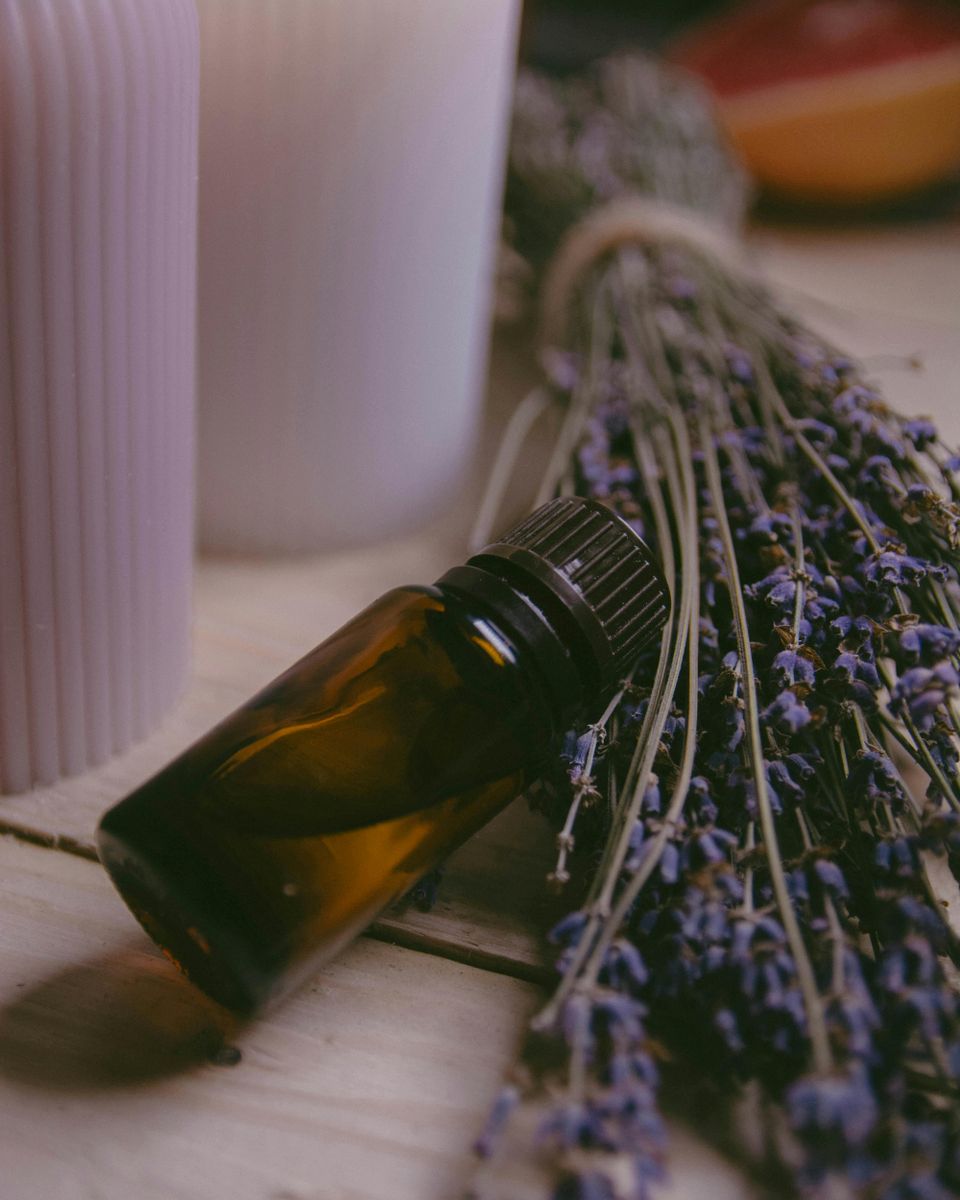Difference between an essential oils and fragrances

The main difference between an essential oil and a fragrance lies in their origin, composition, and purpose. Here’s a clear comparison:
1. Origin
Essential Oil:
• Derived from natural sources such as plants, flowers, roots, or fruits.
• Extracted through processes like steam distillation or cold pressing.
• Example: Lavender essential oil, obtained from lavender flowers.
Fragrance:
• Can be synthetic (created in a lab) or a blend of natural and synthetic compounds.
• Not necessarily derived from plants or natural materials.
• Example: A “vanilla” scent that does not come from real vanilla.
2. Composition
Essential Oil:
• Contains pure natural compounds from the plant, such as terpenes and esters.
• Its composition may slightly vary depending on factors like climate, soil, and harvest season.
Fragrance:
• A blend designed to mimic or create specific aromas.
• May contain hundreds of synthetic chemical compounds and is often less pure than essential oils.
3. Purpose
Essential Oil:
• Used in aromatherapy, natural personal care products, and some therapeutic treatments.
• Has therapeutic properties and specific benefits (e.g., relaxation, stress relief, antimicrobial properties).
Fragrance:
• Primarily used to scent products like candles, soaps, perfumes, or air fresheners.
• Does not have therapeutic benefits; its purpose is purely aromatic.
4. Safety and Use
Essential Oil:
• Highly concentrated and potent, requiring dilution before applying to the skin.
• Can cause allergic reactions if used improperly.
Fragrance:
• Due to its synthetic nature, it is more likely to cause irritation or allergies in sensitive individuals.
• Not suitable for therapeutic applications.
5. Scent Longevity
Essential Oil:
• Tends to have a softer and less long-lasting aroma compared to synthetic fragrances, as it lacks artificial fixatives.
Fragrance:
• Typically stronger and longer-lasting due to the chemical fixatives used.
Conclusion
If you’re looking for something natural and therapeutic, essential oils are the best choice. If you simply want a pleasant, long-lasting scent for a product, a fragrance might suffice. The choice depends on your specific needs and sensitivity to chemical products.
1. Origin
Essential Oil:
• Derived from natural sources such as plants, flowers, roots, or fruits.
• Extracted through processes like steam distillation or cold pressing.
• Example: Lavender essential oil, obtained from lavender flowers.
Fragrance:
• Can be synthetic (created in a lab) or a blend of natural and synthetic compounds.
• Not necessarily derived from plants or natural materials.
• Example: A “vanilla” scent that does not come from real vanilla.
2. Composition
Essential Oil:
• Contains pure natural compounds from the plant, such as terpenes and esters.
• Its composition may slightly vary depending on factors like climate, soil, and harvest season.
Fragrance:
• A blend designed to mimic or create specific aromas.
• May contain hundreds of synthetic chemical compounds and is often less pure than essential oils.
3. Purpose
Essential Oil:
• Used in aromatherapy, natural personal care products, and some therapeutic treatments.
• Has therapeutic properties and specific benefits (e.g., relaxation, stress relief, antimicrobial properties).
Fragrance:
• Primarily used to scent products like candles, soaps, perfumes, or air fresheners.
• Does not have therapeutic benefits; its purpose is purely aromatic.
4. Safety and Use
Essential Oil:
• Highly concentrated and potent, requiring dilution before applying to the skin.
• Can cause allergic reactions if used improperly.
Fragrance:
• Due to its synthetic nature, it is more likely to cause irritation or allergies in sensitive individuals.
• Not suitable for therapeutic applications.
5. Scent Longevity
Essential Oil:
• Tends to have a softer and less long-lasting aroma compared to synthetic fragrances, as it lacks artificial fixatives.
Fragrance:
• Typically stronger and longer-lasting due to the chemical fixatives used.
Conclusion
If you’re looking for something natural and therapeutic, essential oils are the best choice. If you simply want a pleasant, long-lasting scent for a product, a fragrance might suffice. The choice depends on your specific needs and sensitivity to chemical products.
